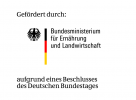On November 27, 2024, the „German-Kazakh Agrarian Policy Dialogue“ project convened an Expert Meeting focused on „Sustainable Forage Production and Pasture Management“ in Tashkent, Uzbekistan. This event served as a platform for Uzbek experts and policymakers along with experts and practitioners from Kazakhstan, Kyrgyzstan, and Tajikistan, to share knowledge, experiences, and best practices of sustainable agriculture.
- The meeting underscored the growing need for sustainable agricultural practices in Central Asia, particularly concerning the management of pastures and forage production. Several key themes emerged during the Expert Meeting, highlighting the current state of forage production systems and exploring potential policy and approaches for improvement.
- Highlights and Insights from Speakers Anton van Engelen provided a comprehensive overview of the current state of forage production in the region. He emphasized that „the main problems in forage production include land degradation, poor quality of seeds, and a lack of modern agricultural knowledge and approaches.“ S. Puchkova, representing Kazakhstan, shared insights on „Sustainable Fodder Crops Cultivation and Pasture Management“. She articulated that “ Updating the law on pastures plays an important role in enhancing the resilience of pastoral systems and state support (subsidy) in forage production.“ Puchkova’s emphasis on sustainability highlighted the importance of ecological balance and long-term productivity in pasture regions. Ms.S. Kelyazova from Kyrgyzstan focused on the „Assessment and Improvement of Pastures.“ According to her, „a thorough examination of our pasture lands will reveal opportunities for enhancement that can yield both economic and environmental benefits.“ Regarding forage production she concluded that cultivation of adapted varieties of perennial forage grass in necessary and there is urgent need to develop elements of forage grass cultivation technology considering climatic conditions and soils of the region. Mr. K. Idrisov, another expert from Kazakhstan, analyzed the state of pastures in his country, bringing to light „innovative methods of their improvement.“ He noted that „innovative agricultural technologies, including rotational grazing and improved seeding practices, hold the key to restoring pasture health.“ He also stated that it is important to develop GIS maps of water availability and productivity of distant pastures in all regions of Kazakhstan as well as international experience of pasture management systems. His call for innovation resonated with many participants, emphasizing the need for progressive solutions in pasture management.
- According to Mr. Mukimov (Uzbekistan) on the most degraded areas it is recommended to carry out special phytomelioration measures (sowing of wormwood, izenya, chogon, saxaul, etc.). Moreover, for full restoration of natural ephemeral-ephemeroid vegetation cover on degraded lands it is recommended to create pasture-protective strips.
- Forage production: Produced seeds of fodder plants in the 2-3 year of vegetation can be used for restoration of degraded lands, distribution, and dissemination to other farms. Lastly, Sharofjon Rakhimov from Tajikistan presented on the challenges and achievements facing Tajik pastures, noting that „despite various hurdles, there have been significant strides in pasture rehabilitation. However, persistent issues like overgrazing and inadequate resource allocation remain critical threats.“ Rakhimov’s presentation reminded attendees of the ongoing efforts and the need for collaborative initiatives to address these issues. Moreover, he stated that protection for the interests of pasture users, the Public Association of Pasture Users (PUP) is organized; and to build trust among villagers regarding fair distribution of pasture plots plays an important role for sustainable development of pastures in future. He also highlighted that close cooperation with international experts to obtain modern and innovative knowledge and information is very important.



